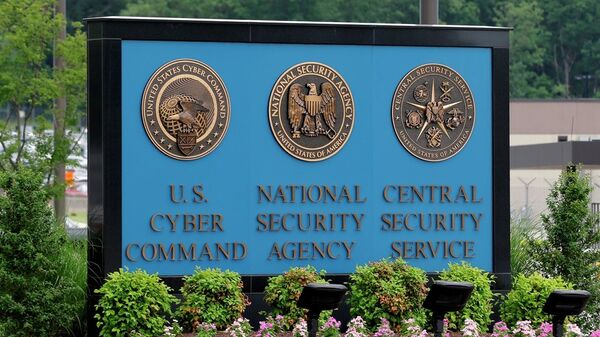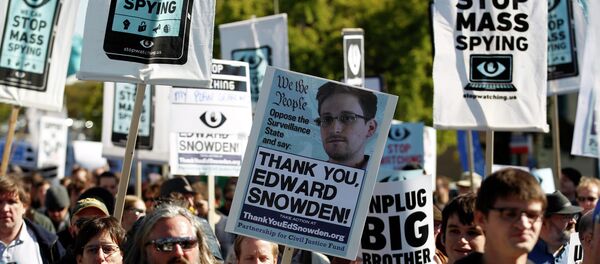PRISM was first publicly revealed in the The Washington Post and The Guardian, based on allegations by Edward Snowden who had been a National Security Agency contractor. According to leaked NSA slides, PRISM allowed the NSA to compel companies — including Microsoft, Yahoo, Google, Facebook, PalTalk, AOL, Skype, YouTube and Apple — to grant them access to users' personal data on their servers.
In wake of US #FreedomAct, we're taking UK spy agencies to court over bulk domestic spying. https://t.co/lUq8B0qVQ2 pic.twitter.com/jkt1PMSc14
— PrivacyInternational (@privacyint) June 8, 2015
Snowden also revealed that the NSA and GCHQ directly intercept cables connected to the US (through the UPSTREAM program) and the UK (under the TEMPORA program). These cables carry most of the word's communications, and a leaked slide from GCHQ expressly says they are intent on "Mastering the Internet".
Limited Damage to Data Mass Surveillance
Unlike the phone records program which the Freedom Act curbed, PRISM has proven instrumental in foiling terrorist plots, and lawmakers in the US were loath to tinker with it. According to CIO Today, NSA leaders are shedding few tears over losing the authority to collect Americans' phone records, former officials say. Independent reviews of the program found that it wasn't a critical tool, and former NSA officials revealed that some inside the agency had wanted to abandon it.
The only reason the NSA didn't propose keeping the records with the phone companies years ago, former NSA Director Keith Alexander has said, is that no one wanted to seek legislation from Congress while the program remained a secret.
"The damage that's been done to our intelligence capabilities is modest," said Stewart Baker, a former NSA general counsel.



